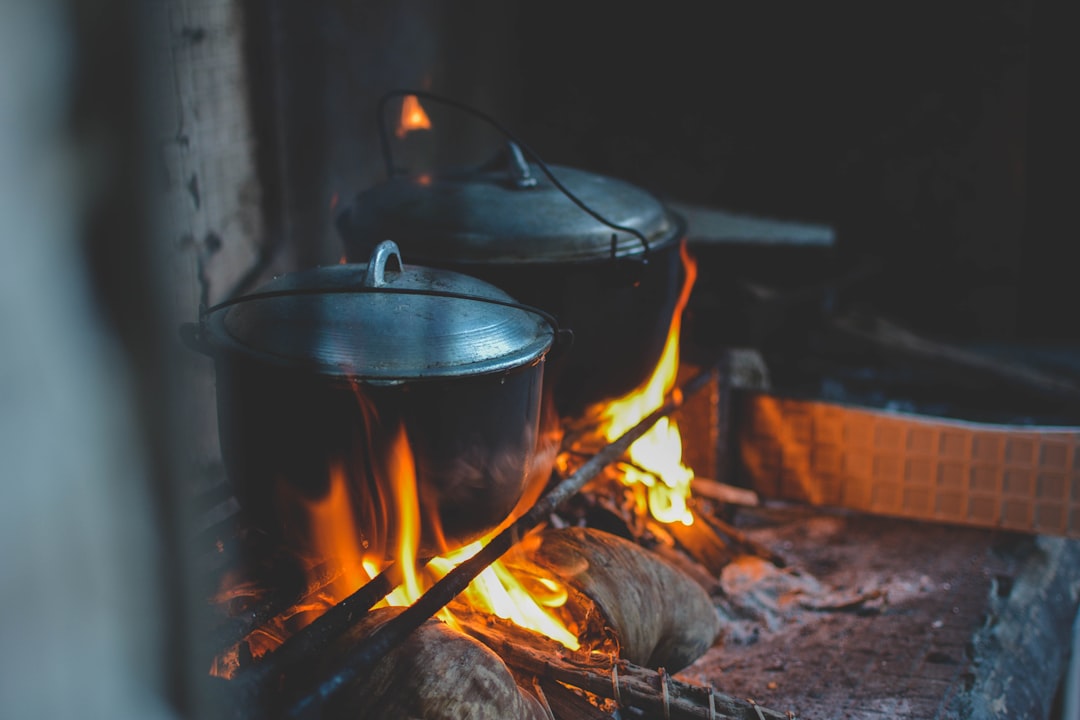“What if winds blew and snow drifted; without wishing to romanticize the picture, there was warmth from the glowing embers of the peats heaped up in the middle of the room. There was a gentle smoke, reeking pleasantly of heady peat bog, as it wafted its way upwards. There was the comforting sight of the black iron pot, hanging on the end of a rope fixed to a rafter, quietly steaming away with a grand meal of light, mealy potatoes in the bottom, and on top a thick layer of fat herrings which had been salted in the autumn.
[…] They were happily fed, they were cosy enough, they loved the land, the community, their animals, the solitude and peace of a beautiful country. They had known hardship and survived […].”
Catherine Brown, “Broths to Bannocks”
One of my favorite hobbies—which will probably come as no surprise to anyone—is the study of ancestral social histories, namely my own: the Celts and the Germans.
My favorite resources are old, out-of-print, or unusual books about rural life, folk ways, and strange superstitions. But to me, the study of food—what people eat and have always eaten—is the true study of culture. So vintage or rare cookbooks are the real treasures of my collection.
Something that I find particularly fascinating is that humans are so incredibly adaptable. We have historically lived in some of the harshest places on earth and, somehow, thrived. And all because, even in the harshest places, there are things to eat. To keep us satisfied. To build ceremony and society and culture around.
It’s not news that we live in a particularly decadent time, no matter what hardships we face (and we do, admittedly, face many). Most of us are able to turn on a light bulb when we need light, access a limitless digital ocean of information at our desire, and heat ourselves and our homes without lifting a finger of effort besides pushing a button.
And—wonder of wonders!—it would have amazed our ancestors to know that we can buy a meal already piping hot from the store, or ready to throw into the microwave (a magic box that cooks food nearly instantly!).
As miraculous as all of this is—and believe me, it is—it can really mess with our sense of Providence, can’t it?
This is why, I think, we get a glimmer of ancestral gratitude, and a sense of receiving unearned grace, when we partake in certain activities. Cooking a meal from scratch or baking a loaf of bread, for example. Growing and harvesting our own food, even if it’s just a little patch of bright snappy lettuce. Pulling a shining trout out of the cold lake, pristine and glittering. Preserving our food by canning, dehydrating, and fermenting. Foraging nutritious wildlings from the woods, from the field, from the seashore.
It puts us in mind of a time when the generosity of Providence was the only source of sustenance, and when we knew in our very souls that connection—with God, with the seasons, with the soil—was the only way to survive.
It should be noted that all of us—every single one of us—is a descendent of such generosity of Providence. And what soul-level understanding we had once can always be reclaimed.
Did this piece resonate with you? Take a moment to share it!
If you enjoy this piece, please let me know by tapping the heart to like, comment with your thoughts, share with someone you think will enjoy it, and subscribe to get instant access to my future work right to your inbox. Blessings!




